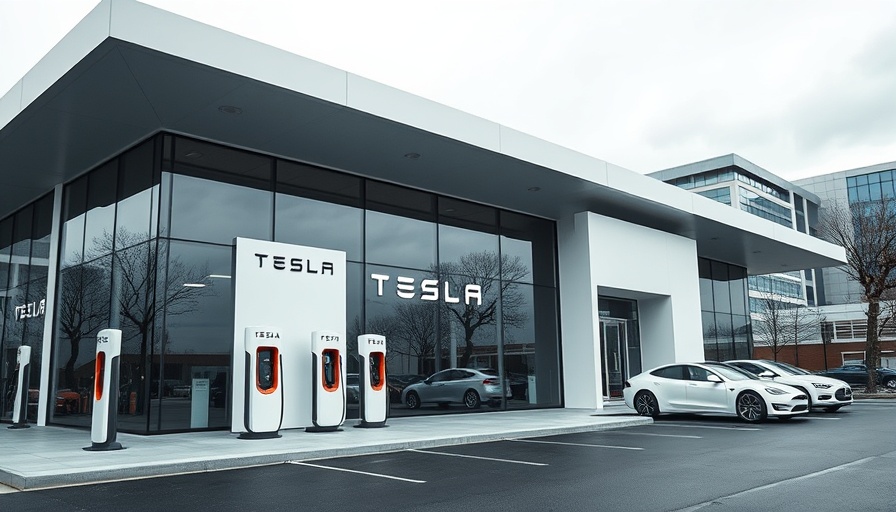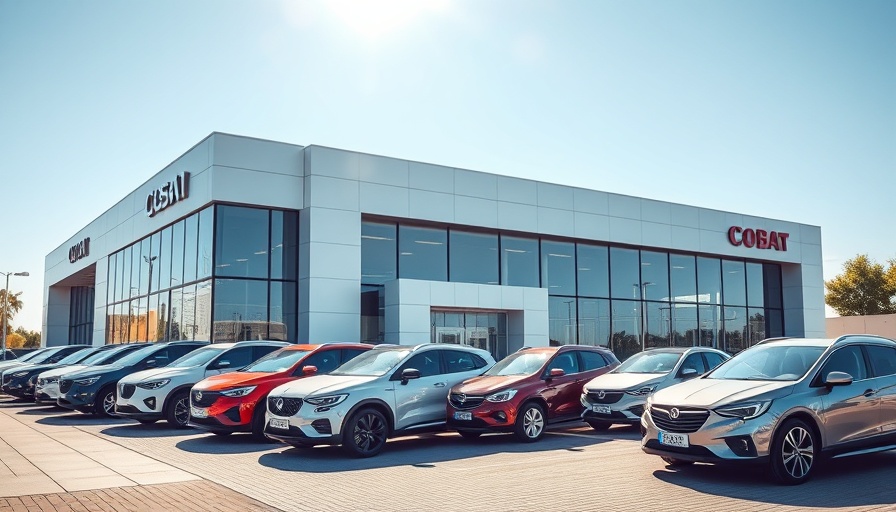
Understanding April's Car Sales Landscape
April brought a mixed bag for the UK's car market, revealing significant changes in consumer preferences and brand performance. Chinese electric vehicle manufacturer BYD emerged as a remarkable winner, with a staggering increase in sales of 654%, translating to 2,511 units sold during the month. This growth reflects a burgeoning interest in electric vehicles (EVs) that prioritize affordability and sustainability.
Who Else is Rising in Sales?
Alongside BYD, Jeep reported a notable 135.6% rise in sales, totaling 815 units, while Polestar, the luxury electric brand under Geely, saw sales rise by an impressive 82.8%, selling 859 units. Even established European brands like Peugeot and Vauxhall posted growth, with Peugeot's sales climbing by 37.9% to 5,914 units, and Vauxhall achieving a 17.7% increase to 5,162 units. This trend suggests that consumers are increasingly gravitating towards reliable brands, especially those that emphasize electrification.
The Downside: Tesla Faces Major Challenges
On the contrary, Tesla, a frontrunner in the electric vehicle space, experienced a sharp decline in sales, plummeting by 62.1% to just 512 units. This steep drop raises questions about Tesla's market position and emphasizes the challenges they face in a rapidly evolving automotive landscape. Citroen also struggled, seeing sales decrease by 54.6% to 958 vehicles. Overall, the UK’s new car sales fell by 10.4%, amounting to 120,331 units registered, marking the sixth downturn in seven months.
What Lies Ahead for Car Manufacturers?
As we look to the future, companies in the automotive sector must adapt to changing consumer demands, particularly as electric vehicle technology continues to advance. With EV adoption on the rise, brands that can effectively cater to these shifting preferences will likely thrive. It's clear that April's sales figures reflect a pivotal moment, pushing manufacturers to reassess their strategies for 2025 and beyond.
Thanks to BYD's explosive growth, the landscape might soon shift favoring those willing to innovate and prioritize consumer needs over legacy practices. The struggles faced by Tesla and others should serve as a wake-up call for the entire industry to embrace change rapidly. Will manufacturers harness the winds of change, or will they stall in the face of new challenges? Only time will tell. Add Row
Add Row  Add
Add 




 Add Row
Add Row  Add
Add 

Write A Comment